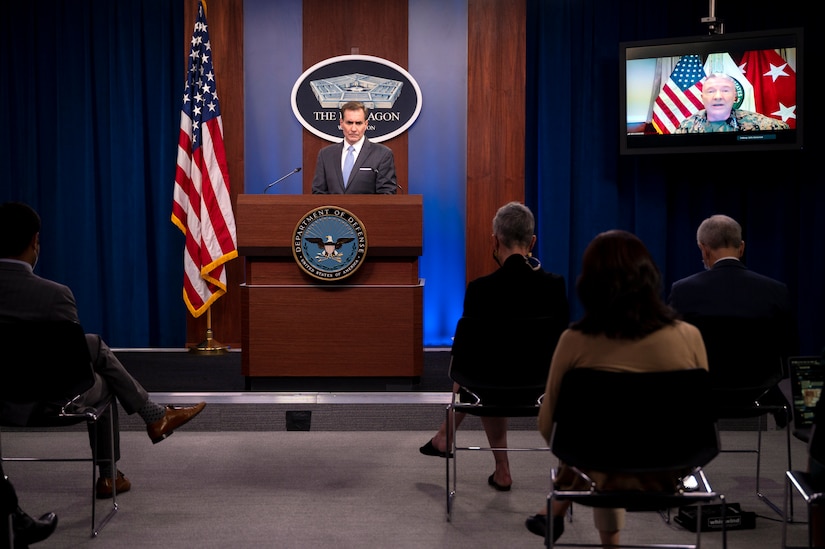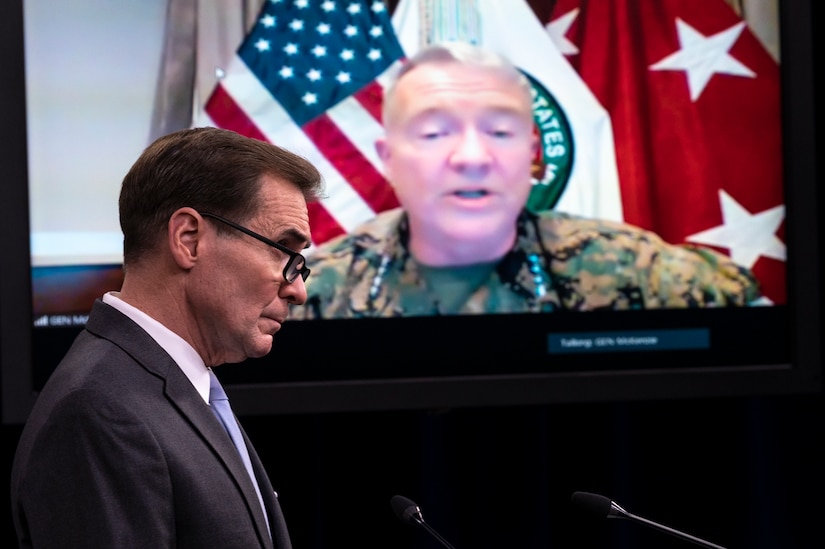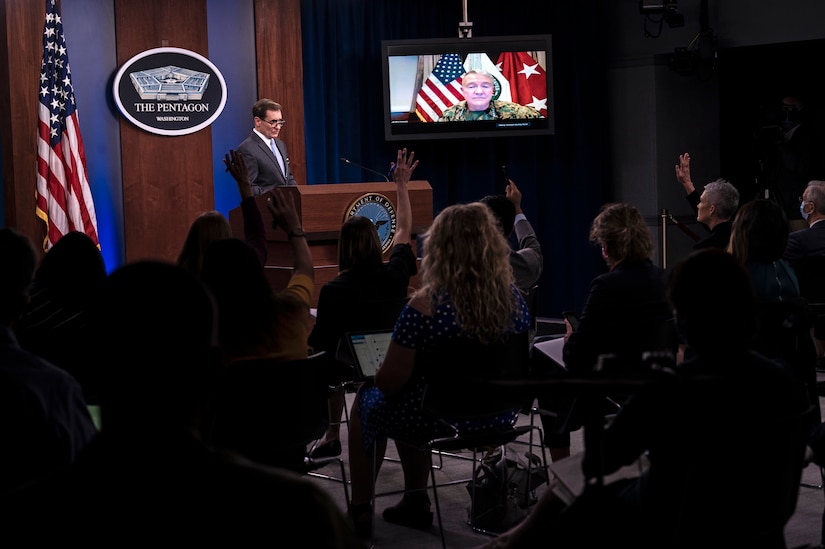The attacks involved an explosive set off by a suicide bomber near the Abbey Gate entrance to Hamid Karzai International Airport. Nearby, another suicide bomber set off an explosive at the Baron Hotel. Those attacks were followed by gunfire from ISIS gunmen.

Despite the tragic loss of life, the mission to evacuate American citizens and vulnerable Afghan civilians from Afghanistan will continue undeterred, Marine Corps Gen. Kenneth F. McKenzie Jr., commander of U.S. Central Command, said during a briefing today at the Pentagon.
"Let me be clear: while we're saddened by the loss of life, both U.S. and Afghan [citizens], we're continuing to execute the mission," the general said.
Right now, that mission is to evacuate from Afghanistan U.S. citizens, third-country nationals, special immigrant visa holders, U.S. embassy staff, and at-risk Afghans. Currently, there are now some 5,000 individuals awaiting evacuation from the country, McKenzie said.
Since Aug. 14, he noted, more than 104,000 civilians have been evacuated — including about 5,000 Americans. He said he believes there are a little over 1,000 American civilians left in the country now.
"We're doing everything we can, in concert with our Department of State partners, to reach out to them and to help them leave, if they want to leave. And remember, not everybody wants to leave," he said.

The risks to U.S. forces conducting evacuation operations in Afghanistan are well-known, McKenzie said, and include a number of what he described as "tactical threats."
Those threats include rocket attacks, which he said could be countered by anti-rocket and mortar systems in place at the airport. "We feel that we'd be in good shape should that kind of attack occur," he said.
Also a risk, he said, are larger suicide bomb attacks similar to the ones this morning.
"We also know they aim to get a ... vehicle-borne suicide attack in if they can — from a small vehicle to a large vehicle — they're working all those options," he said. "All of those things we look at."
The Taliban is now doing security outside the airport and McKenzie said the U.S. military is working with them so they can help mitigate some of the threats.
Right now, it's not 100% clear exactly who is responsible for planning the bombings, but McKenzie said that the U.S. military is looking for the perpetrators and will take action once it is discovered who is responsible.
"If we can find who's associated with this, we will go after them," he said. "We've been clear all along that we're going to retain the right to operate against ISIS in Afghanistan, and we are working very hard right now to determine attribution to determine who is associated with this cowardly attack, and we're prepared to take action against them. 24/7, we are looking for them."

Inside Afghanistan, U.S. Central Command continues to execute the mission to evacuate as many civilians as possible. Back in the U.S., the military services will conduct next-of-kin notifications to the families of those service members who were killed, McKenzie said.
Earlier today, Secretary of Defense Lloyd J. Austin III expressed condolences to the families, loved ones and colleagues of those lost in the attacks.
"On behalf of the men and women of the Department of Defense, I express my deepest condolences to the loved ones and teammates of all those killed and wounded in Kabul today," he said. "Terrorists took their lives at the very moment these troops were trying to save the lives of others. We mourn their loss. We will treat their wounds. And we will support their families in what will most assuredly be devastating grief."
Like McKenzie, Austin reiterated the U.S. commitment to continue the mission in Afghanistan until it is complete.
"We will not be dissuaded from the task at hand," he said. "To do anything less — especially now — would dishonor the purpose and sacrifice these men and women have rendered our country and the people of Afghanistan."







No comments:
Post a Comment